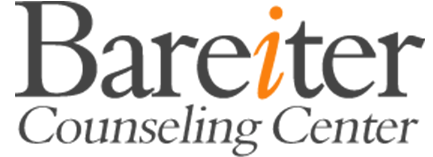How Does Christian Counseling Differ from Standard Counseling for Issues Such as Depression, Anxiety, Individual Therapy, and Marriage Counseling?
Christian counseling differs from standard counseling primarily in its integration of Christian faith, values, and principles into the therapeutic process. While both approaches aim to address mental health issues, personal challenges, and relational conflicts, Christian counseling incorporates spiritual beliefs, biblical teachings, and prayer as integral components of therapy. Bareiter Counseling Center’s Christian Counselors in their Charlotte therapy office can help you work through life’s challenges using a faith-based therapy approach. Here are some key differences between Christian counseling and standard counseling across various contexts:
- Integration of Faith and Therapy:
- Christian Counseling: Integrates Christian faith and biblical principles into the therapeutic process, offering spiritual support, guidance, and encouragement alongside evidence-based counseling techniques.
- Standard Counseling: Focuses primarily on psychological and emotional issues, utilizing evidence-based therapeutic modalities such as cognitive-behavioral therapy (CBT), psychodynamic therapy, or interpersonal therapy without explicit incorporation of religious or spiritual elements.
- Spiritual Perspective:
- Christian Counseling: Offers a spiritual perspective on mental health issues, encouraging clients to explore their relationship with God, seek guidance through prayer and scripture, and apply biblical principles to coping strategies and problem-solving.
- Standard Counseling: Typically addresses mental health concerns from a secular or non-religious perspective, focusing on psychological and behavioral factors, interpersonal dynamics, and coping skills without explicit reference to spiritual beliefs or practices.
- Treatment Approach:
- Christian Counseling: Incorporates faith-based interventions, such as forgiveness, gratitude, surrender, and reliance on God's guidance, alongside traditional therapeutic techniques to promote emotional, psychological, and spiritual healing.
- Standard Counseling: Utilizes evidence-based therapeutic approaches tailored to the individual's needs and goals, such as cognitive restructuring, relaxation techniques, exposure therapy, or communication skills training, without emphasis on spiritual or religious components.
- Goals and Outcomes:
- Christian Counseling: Seeks to address mental health issues within the context of spiritual growth, personal transformation, and alignment with Christian values, aiming for holistic healing that encompasses emotional, psychological, and spiritual dimensions.
- Standard Counseling: Focuses on symptom reduction, improved functioning, and enhanced coping skills to alleviate distress, resolve interpersonal conflicts, and promote overall well-being without explicit consideration of religious or spiritual goals.
- Marriage Counseling:
- Christian Marriage Counseling: Integrates biblical principles and teachings on marriage and family relationships into therapy, addressing issues such as communication, conflict resolution, forgiveness, and spiritual intimacy within the context of Christian faith.
- Standard Marriage Counseling: Focuses on improving marital communication, resolving conflicts, enhancing intimacy, and fostering mutual understanding and support using evidence-based techniques derived from various therapeutic approaches without specific religious or spiritual emphasis.
If you are a Clinician and interested in Continuing Education Workshops, Join our Email List
Contact Us
Thanks for joining!
Oops, there was an error joining our email list.
You have the right to receive a "Good Faith Estimate" explaining how much your medical and mental health care will cost. Under the law, health care providers need to give patients who don't have insurance or who are not using insurance an estimate of the expected charges for medical services, including psychotherapy services. You have the right to receive a Good Faith Estimate for the total expected cost of any non-emergency healthcare services, including psychotherapy services. You can ask your healthcare provider, and any other provider you choose, for a Good Faith Estimate before you schedule a service. If you receive a bill that is at least $400 more than your Good Faith Estimate, you can dispute the bill. Make sure to save a copy or picture of your good faith Estimate. For questions or more information about your right to a Good Faith Estimate, visit www.cms.gov/nosurprises or call 800-985-3059.
Menu
Quick Links
Get in Touch
Work Hours
- Mon - Thu
- -
- Friday
- -
- Saturday
- Appointment Only
- Sunday
- Closed
All Rights Reserved | Site by Fix8

